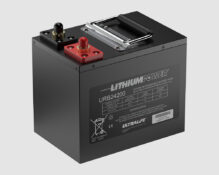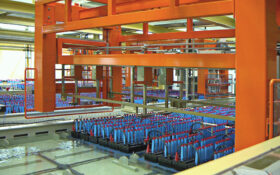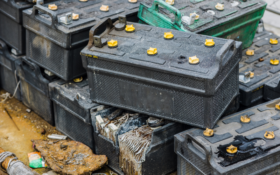Industrial-scale energy storage systems are the focus of lead battery organisation Consortium of Battery Innovation’s (CBI) 2020 request for proposals (RFP) for technical projects.
CBI’s global membership identified energy storage applications as a prime area in which research into field and laboratory tests for lead battery-based energy storage systems (ESS) was essential.
Key areas will include microgrids for renewable energy, grid regulation and demand response for commercial and industrial applications.
A CBI spokesman said: “We have all seen the predictions of massive growth and demand for energy storage, and batteries are a vital way in which this will be achieved.”
While CBI’s technical program has a preferred focus in ESS applications it will accept proposals looking to increase performance in other applications as dictated by its innovation roadmap.
That roadmap includes: improving dynamic charge acceptance of lead batteries in micro and mild-hybrid cars, and increasing partial-state-of-charge in enhanced flooded batteries from 1,500 to 3,000 in the next five years.
The inclusion of battery storage follows a prediction by the International Renewable Energy Agency (IRENA) that 150GW of storage capacity will be needed by 2030 to achieve renewable energy targets.
ESS deployment hit record levels in the US last year, with the energy storage sector reporting a record 186MW/364MWh of storage was delivered in Q4.
Lead battery maker Exide’s neutron diffraction was the first project to be launched from CBI’s 2019 program, and the remaining seven projects are due to be launched throughout the next few months.
While the organisation’s 2019 program is still underway, Narada’s project from the previous program was completed late last year. The 16MW project in Germany showed that advanced lead batteries could be used for frequency regulation.
The RFP and proposal preparation guidelines can be found on the CBI website.












